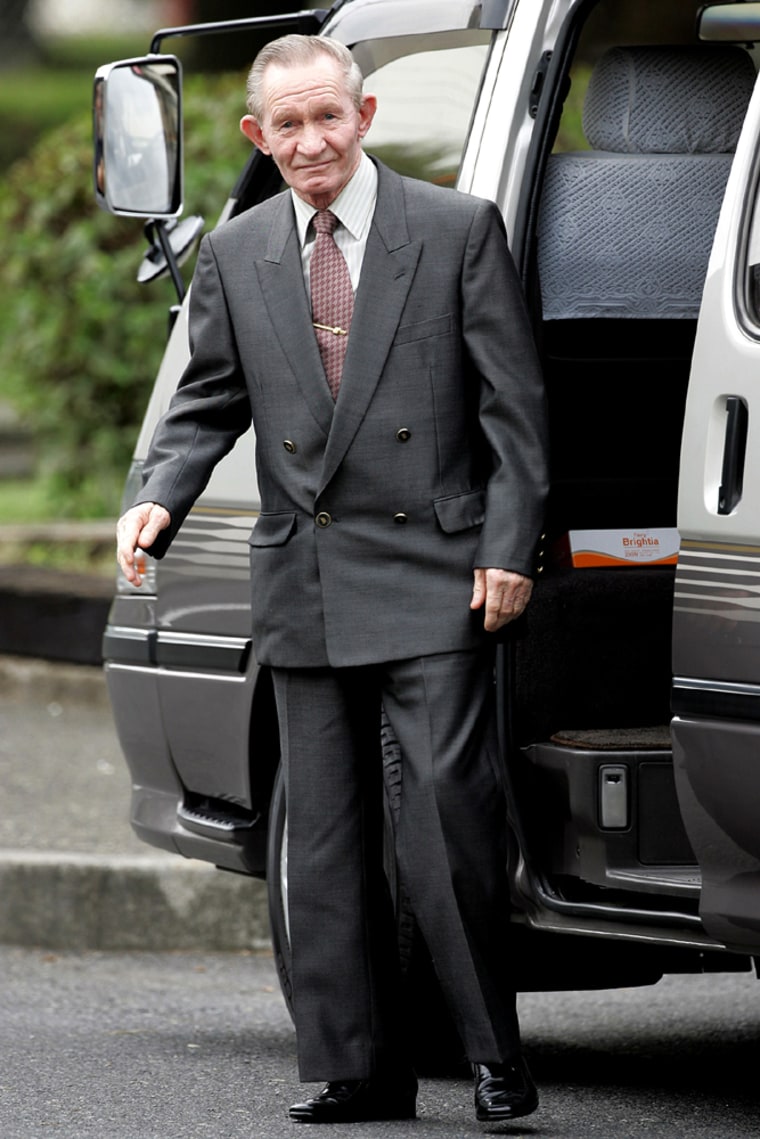Sgt. Charles Robert Jenkins, accused of deserting his Army unit in 1965 and defecting to North Korea, will face a court martial beginning on Nov. 3, the spokesman for the U.S. Army in Japan said Thursday.
The announcement of the date strongly indicated that Jenkins has decided to admit guilt to at least one of the charges against him, probably in exchange for a light sentence.
Jenkins turned himself in at a U.S. Army base just southwest of Tokyo on Sept. 11 and has been living there with his Japanese wife and two North Korea-born daughters pending trial. The frail 64-year-old has been put back in uniform and assigned to clerical duties with a new unit.
The date was confirmed by Maj. John Amberg, spokesman for the U.S. Army, Japan headquarters at Camp Zama.
If he has agreed to a plea bargain, the proceedings would likely be over quite quickly. But base legal experts said that, if contested, a verdict could take from one to three months, with sentencing two or three months afterward.
Along with desertion, Jenkins faces two counts of soliciting other service members to desert, one of aiding the enemy and two of encouraging disloyalty.
Jenkins’ fate has been of high interest in Japan because his wife, Hitomi Soga, was one of five Japanese who were abducted to the North in the late 1970s and allowed to return home two years ago.
Soga’s personal tragedy has created a huge outpouring of sympathy in Japan. She was allowed to return to this country with the four other abductees after a landmark Japan-North Korea summit in 2002. But Jenkins, fearing prosecution, and the daughters joined only her in July.
The Japanese public strongly favors leniency for Jenkins so that the family can start a new life in this country.
The charges against Jenkins, a native of Rich Square, North Carolina, are serious, however.
Shortly after he was separated from his unit along the Demilitarized Zone in January 1965, his voice was heard in broadcasts urging other soldiers to join him. Years later, he appeared in anti-U.S. propaganda movies and taught English at a school for North Korean intelligence agents.
In wartime, the maximum penalty is death. More than 21,000 soldiers were convicted of desertion in World War II, and 49 sentenced to death. But only Pvt. Eddie Slovak was actually executed, by firing squad in January 1945. No soldier has been executed for desertion since.
Sentences for desertion in peacetime range from life in prison at hard labor to a dishonorable discharge. Because the United States and North Korea were not technically at war in 1965, it was not clear which category Jenkins’ case would fall into.
Jenkins has refused to comment on whether he deserted.
When asked by a Japanese interviewer two years ago — while he still lived in North Korea — how he ended up there, Jenkins replied; “I walked.”
